2016 Renault Kwid 1.0 review, road test
With a 1.0-litre engine and an AMT option, is the Kwid experience now complete?
Published on Feb 28, 2017 06:00:00 AM
99,535 Views
Follow us on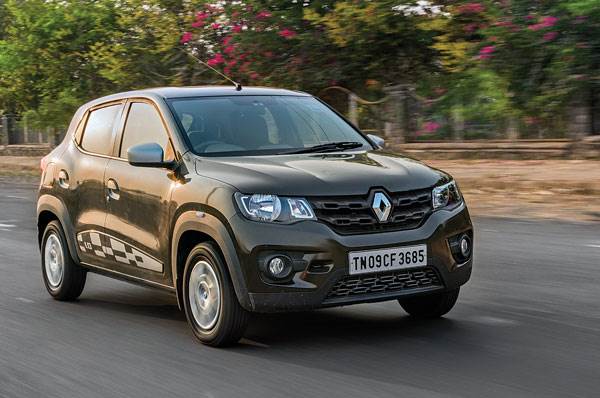
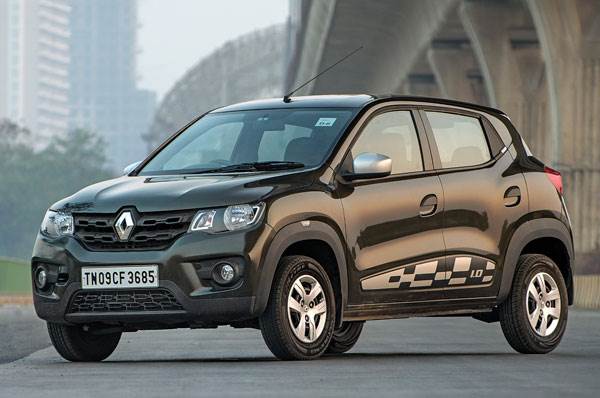
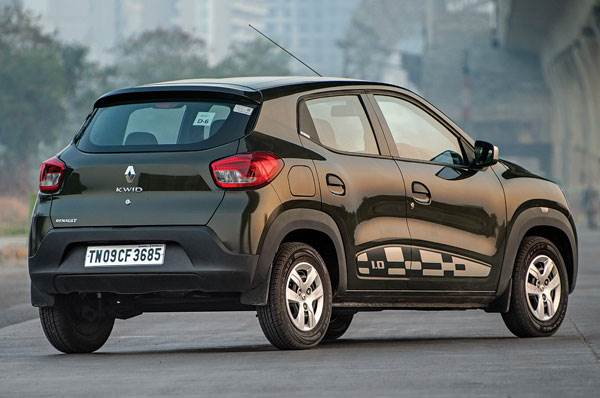
Door decals and grey mirrors, the only style difference in the 1.0-litre cars.
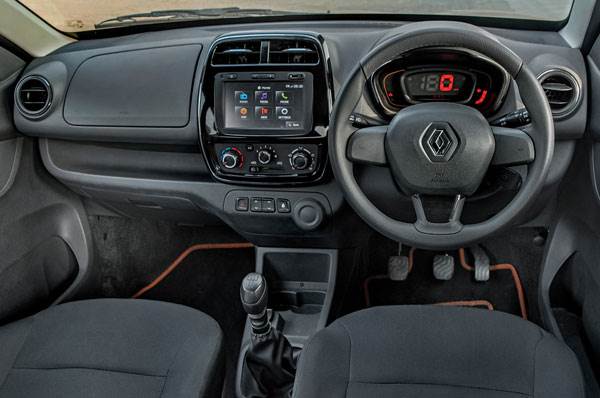
Touchscreen and digital instrumentation still the highlight of the segment.
Overtaking is easy in town and on the highway, and complementing the increased performance is the Kwid’s composure at speed. The long-travel suspension was one of the outstanding bits of the Kwid and it feels just as good on this latest variant. The MacPherson struts up front and the twist beam at the rear do an outstanding job of absorbing pretty much everything our roads throw at it. Apart from the incredible ride, the Kwid handles well too and gives a certain level of confidence you get in a bigger, heavier car. It’s only at highway speeds that – due to the light steering and a susceptibility to be buffeted by cross winds – a sense of unease steps in.
The automatic variant – available with only the 1.0-litre engine (plans to offer an auto on the 0.8 have been shelved for now) – gets the automated manual transmission (AMT), which is now a mainstream technology in budget automatic cars. However, the Kwid’s AMT is radically different to all the other AMT cars we’ve driven.
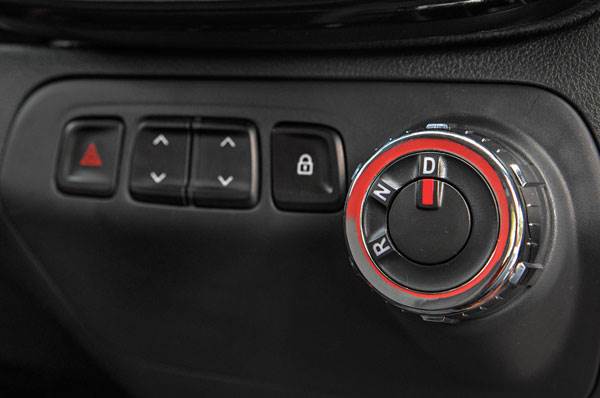
Firstly, the typical gear lever has been replaced by a dashboard-mounted rotary selector knob which frees up storage space in the centre console. However, this also means that there is no way of manually influencing a gear change; there is no lever to tip or paddles to flip. All you have are three modes on the selector knob – Forward, Reverse and Neutral. There isn’t a gear indicator either to tell you which gear you’re driving in. Renault is banking on a hunch that most owners will want convenience above all and wouldn’t want to bother with manually shifting gears. The other major difference between the Kwid AMT (Easy-R in Renault brand speak) and other AMTs is that the Renault unit uses just one Electronic Control Module (ECM) for both the engine and the transmission. All other AMTs use two ECMs, one for the engine and the other for the transmission to ‘talk’ to each other, primarily because the suppliers for the engine and AMT units are different. But in Kwid’s case, Renault has developed the AMT unit in-house. This has not only saved costs but has allowed for a more seamless integration between the engine and transmission. The third difference is that the gear ratios, between the manual and the AMT, are not identical or shared. Renault has taken the effort to give the Kwid AMT shorter second, third and fourth gear ratios to improve drivability. So how does all this work in the real world?
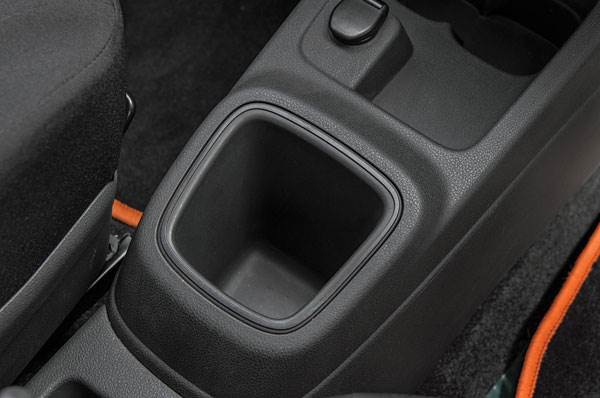
There’s a bit of a start-up procedure. You have to select ‘N’ and have your foot on the brake and wait for three seconds before the engine fires up. Rotate the knob to ‘D’, floor the throttle and there’s an initial jerk when the clutch sharply engages, but after that upshifts are impressively smooth and quick. Drive with a light foot and the gearbox is calibrated to upshift as quickly as possibly and when you floor it, there’s a fair bit of hesitation before the downshift. There is a bit of a pause between shifts but it’s nowhere as much as the other AMTs we have driven.
Copyright (c) Autocar India. All rights reserved.


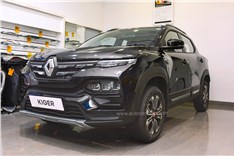


Comments
Member Login
Personal Details
No comments yet. Be the first to comment.